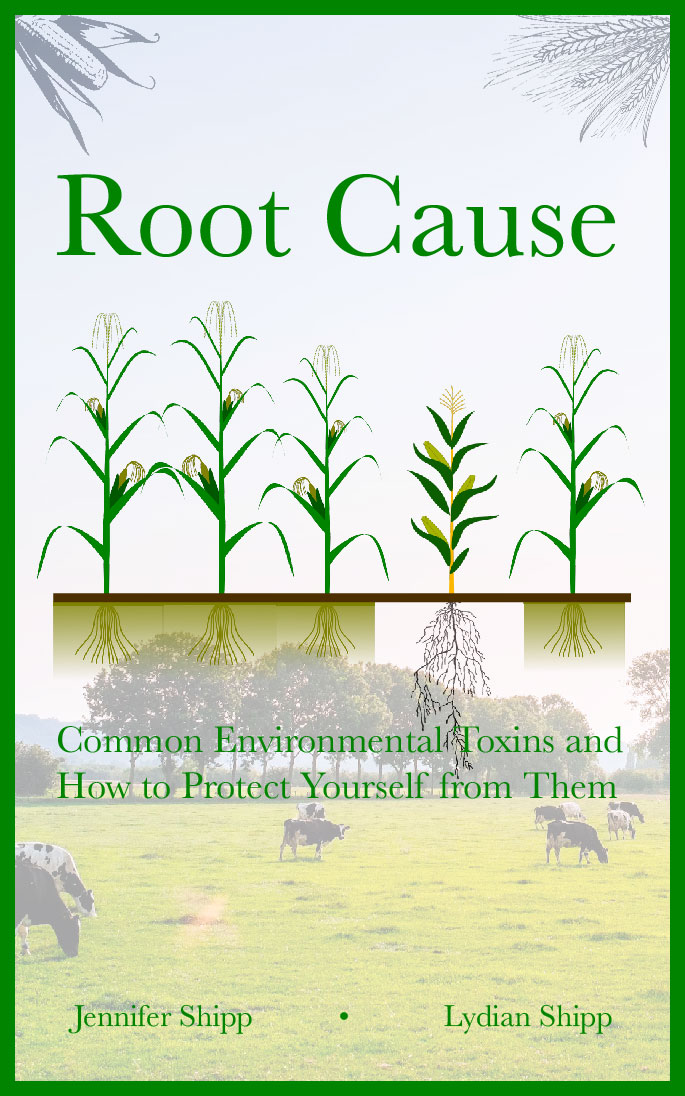Organophosphate Food Additives
Bisphosphonates are medicines that are toxic because they contain phosphates that are attached to carbon atoms in a manner that is not healthy for the body. The body needs phosphate, but only in certain chemical configurations. Combining phosphate with carbon, in particular causes the phosphates to be toxic to the human body. Though most people think that organophosphate exposure primarily occurs through environmental toxins like insecticides, there are phosphates that are found in foods as additives. These phosphates are also toxic to the body and can contribute to the body’s phosphate “load”. In other words, though our bodies need phosphate in certain nutrient configurations, too much phosphate can be bad for the body and certain chemical configurations of phosphate can be notably toxic for the body. Phosphate additives in food are easily absorbed and they can add to the “phosphate load” involved in causing organophosphate poisoning. So if you’re generally concerned about organophosphate toxicity, consider reading ingredient labels on foods to also avoid phosphate food additives. Look for the root “phosphate” in words on the ingredient label and avoid foods that contain phosphate-ingredients. Excessive intake of phosphorus has been strongly correlated with bone loss and an increased risk of death. Below is a list of foods that contain phosphate additives that should be avoided:- Fast foods contain added phosphates.
- Processed foods / convenience foods like frozen dinners often contain phosphates to improve their shelf life and make them cook more quickly.
- Processed meats that are injected with or marinated in phosphates to keep them juicy and tender.
- Cola drinks contain phosphates as an additive.
- Baked goods often contain phosphates as leavening agents.
Can you protect yourself from organophosphates?
It is possible to protect yourself from organophosphates and we talk more about that in subsequent articles. In this article, our focus is on providing an overview of how organophosphates affect humans and animals and how people might be exposed to phosphates that increase their phosphate load without realizing it. Before you can protect yourself from organophosphates, it’s vital that you understand the points of exposure because many of them can be controlled.Also, many people develop diseases that are caused by organophosphate exposure. Diseases like cancer, Myasthenia Gravis, Gulf War Syndrome, Parkinson’s Disease, Alzheimer’s Disease, kidney failure, and more can be caused by organophosphate exposure. If you or a loved one has one of these disease, you may need to choose an organophosphate detoxification treatment as part of a protocol for healing. If you or a loved one is experiencing serious, life-threatening symptoms such as respiratory failure or cardiac arrhythmias caused by organophosphate poisoning, you should go to an emergency room for treatment. But if you’ve been diagnosed with Myasthenia Gravis or Gulf War Syndrome and you’re looking for a way to reverse organophosphate toxicity, start here.
How do you get rid of organophosphate toxicity?
In this series, we’re going to talk about what organophosphates are and how to detoxify from organophosphate exposure at home. Our research has shown that there are antidotes to organophosphate poisoning and it is possible to detoxify at home (as long as the patient is not suffering from life-threatening organophosphate symptoms) using medicinal agents that are widely available in most countries of the world. We’ll discuss how to detoxify from organophosphate exposure in greater detail after we expand on the topic of organophosphates and “phosphate load” as a health issue that patients can control, in part, by avoiding certain medications (such as bisphosphonates) as well as certain foods that contain phosphate additives.Organophosphate Exposure Basics
Animals and humans are exposed to organophosphates through the consumption of contaminated food and water. Symptoms of organophosphate toxicity include:- Mental Health Issues
- Organophosphates work directly on the neurotransmitter acetylcholine, which plays an important role in mental health as well as in movement and coordination. As such, organophosphate exposure has been correlated with the following psychological issues :
- Anxiety
- Depression
- Mood and Mental Health Disorders
- Organophosphates work directly on the neurotransmitter acetylcholine, which plays an important role in mental health as well as in movement and coordination. As such, organophosphate exposure has been correlated with the following psychological issues :
- Autism
- A woman who is exposed to organophosphates during pregnancy has a 60% higher chance of giving birth to a child with autism than a woman who is not exposed to organophosphates during pregnancy.
- Cognitive Impairment
- Organophosphate poisoning leads to predictable cognitive impairments involving any of the following:
- Eye-hand coordination
- Increased reaction time
- Short-term memory problems
- Learning problems
- Organophosphate poisoning leads to predictable cognitive impairments involving any of the following:
- Nervous system issues
- Organophosphates, in high doses, can also be used as nerve gases because they are poisonous to the nervous system.
- Gulf War Syndrome has been attributed in part to organophosphate exposure.
- Aerotoxic Syndrome has been attributed to organophosphate exposure.
- Intermediate Syndrome / Myasthenia Gravis
- Intermediate Syndrome is essentially synonymous with Myasthenia Gravis. The following organophosphates carry the most risk in terms of causing Intermediate Syndrome / Myasthenia Gravis.
- Methylparathion
- Fenthion
- Dimethoate
- Intermediate Syndrome is essentially synonymous with Myasthenia Gravis. The following organophosphates carry the most risk in terms of causing Intermediate Syndrome / Myasthenia Gravis.
- Parkinson’s Disease
- Various studies have supported the idea that organophosphate exposure causes Parkinson’s Disease.
- Lewy Body Dementia
- Lewy Body Dementia is considered by many scientists to be the same disease as Parkinson’s with symptoms developing in reverse order (dementia first, then tremors later).
- Paralysis
- Organophosphate paralysis often occurs after high levels of exposure, but long-term exposure to organophosphates can cause paralysis too.
- Cancer
- Increased risk of reproductive organ cancers and thyroid cancer has been observed by scientists studying the spouses of professional pesticide applicators. The following are types of cancer related to organophosphate exposure:
- Ovarian Cancer
- Breast Cancer
- Thyroid Cancer
- Increased risk of reproductive organ cancers and thyroid cancer has been observed by scientists studying the spouses of professional pesticide applicators. The following are types of cancer related to organophosphate exposure:
- Death
Organophosphate poisoning is a major problem in the world today. If you or a loved one is suffering from symptoms of organophosphate poisoning and you want to avoid pharmaceuticals or food additives that can make you even sicker, below are ways in which people are being exposed to organophosphates. Avoiding organophosphates is the first step in treating organophosphate poisoning. Below we go into greater detail on organophosphate exposure.
Organophosphate Poisoning
Organophosphate poisoning can occur through deliberate over-ingestion of organophosphates or it can occur due to long-term, chronic exposure and a buildup of organophosphates in the body. The most common type of organophosphate poisoning is known as “Intermediate Syndrome” or “Type II Paralysis”. Intermediate Syndrome looks identical to Myasthenia Gravis in terms of symptoms and some or perhaps all Myasthenia Gravis patients may actually be suffering from Intermediate Syndrome / Type II Paralysis.Organophosphate Exposure Symptoms
Long-terms exposure to organophosphates can cause the following symptoms / side effects:- Anxiety
- Depression
- Lacrimation (the production of excessive tears in the eyes)
- Loss of appetite
- Loss of memory
- Disorientation
- Confusion
- Personality Changes
- Physical weakness
- Paralysis
- Chronic Headaches
- Diarrhea
- Nausea
- Vomiting
- Salivation
- Urination (Incontinence)
- Defecation (Incontinence)
- Intestinal Cramping
- Seizures (Epilepsy Symptoms)
- Neck flexion
- Decreased deep tendon reflexes
- Cranial Nerve Abnormalities
- Respiratory Insufficiency (inability to breathe)
- Small pupils
- Sweating
- Muscle Tremors
- Cardiac Rhythm Abnormalities
- Sinus tachycardia
- Sinus bradycardia
- Atrial fibrillation
- Ventricular tachycardia
- Ventricular fibrillation
- Extrasystoles
How does organophosphate affect the body?
Organophosphate affects the entire body through its action on the nervous system and hormones. It impacts the respiratory system, the heart and circulatory system, the digestive system, the muscles, personality, mood, and mental health.How do you know if you’ve been exposed to organophosphate?
Some organophosphates have a distinctive garlic or petroleum odor. If you live in a rural area where farmers do crop-spraying, you may notice that certain fields have this smell after they’ve been sprayed with organophosphates. Chronic organophosphate exposure occurs in rural areas where crop-spraying is common. But in urban areas, people may be exposed to organophosphates through lawn chemicals that are applied regularly. Even if you don’t apply these chemicals to your own lawn, your neighbors may be applying them to their lawns which can result in chronic organophosphate exposure over time.About 33% of the insecticides that are applied in the U.S. are organophosphates. Methylbromide is another type of insecticide that is associated with different, but similarly frightening symptoms of disease. Indeed, Gulf War Syndrome is likely caused, at least in part, by exposure to bromine / bromide in the form of pesticides and/or prescription medications. Methylbromide as an insecticide has been banned by all developed countries except the United States because of its toxicity. However, though methylbromide has been banned by most developed countries, doctors in those countries may still be prescribing drugs like pyridostigmine bromide and other bromide-containing drugs that actually cause and worsen Myasthenia Gravis symptoms.
In some cases, organophosphates are combined with bromine (a halogen element) in flame retardants. Exposure to flame retardants may be associated with symptoms of both bromine / bromide exposure and organophosphate exposure.
 Click here to subscribe to the Living Database!
Click here to subscribe to the Living Database!
How does organophosphate poisoning happen?
Exposure to organophosphates can occur through:
- Ingestion
- Inhalation
- Skin contact
In other words, you can absorb organophosphates through the skin, the lungs, or by eating them on or in foods or by taking them as medicines known as bisphosphonates.
Organophosphates are sprayed on food plants and crops and small particles of the chemical may be carried on the wind before it falls to the ground. Fields that are sprayed with organophosphates using airplanes and “crop dusters” can distribute organophosphates far from the site of application.
Organophosphate in Meats
Farmers and ranchers may administer organophosphate veterinary medicines to their cows, pigs, chickens, or even fish. The organophosphates are then present in the tissues of these animals such that when the animal is slaughtered, organophosphates are still present in the meat products that humans consume.Organophosphate in the Environment
After organophosphates are applied to food plants and crops, they often remain present and intact in the environment. Organophosphates are found in the water, in the soil and on the surface of plants. They are found in both surface water and in ground water.Organophosphates can be broken down, but they can also build up in the environment and in the body.
Organophosphate Skin Exposure
Organophosphate skin exposure can occur if you (or someone else) applies an insecticide to your lawn or garden that contains organophosphates. The toxic ingredients in the insecticide can pass through the skin and into the bloodstream to cause all of the symptoms listed above.Organophosphate Inhalation Exposure
Even if you don’t touch or ingest organophosphates, you can still be exposed to them through inhalation. For example, if you live next door to someone who sprays their yard with organophosphates and the wind is blowing, the organophosphates can be carried through your windows into your house. Or, when you go outside, if you are near a yard or a lawn that has been sprayed with organophosphates, you can be exposed to them.Similarly, if you live in a rural area near fields that are sprayed using crop-dusters to apply organophosphates, you can be exposed via inhalation.
Organophosphate Ingestion Exposure
Organophosphate ingestion can occur either intentionally or accidentally. Intentional ingestion of organophosphates is often a higher dose. Accidental ingestion is common and though the dose may be lower, regular exposure can build up in the body over time to cause the same symptoms as a high-dose of organophosphates.In countries where organophosphates are widely available for use, people may use organophosphates to attempt suicide. Children can accidentally ingest organophosphates as insecticides that are not stored safely from reach. But organophosphate exposure can also occur through medications prescribed by doctors. Or it can occur when people administer veterinary medications that contain organophosphates to their pets or farm animals.
If you use a pest-control chemical to keep insects out of your pantry, you may inadvertently expose yourself to organophosphates. Dichlorvos is an organophosphate that is used to control pests in foods that are stored indoors. If you use dichlorvos to control pests near your food supply, you may end up ingesting organophosphates without intending to.
Recently, scientists have started studying organophosphates found in meats such as chicken, beef, pork, and fish. Ranchers, for example, are not supposed to administer organophosphates such as Famphur to their animals less than 35 days before slaughter to ensure that the meat will contain a lower amount of organophosphates. I’m not sure how closely administration of organophosphate medications to cows and chickens is monitored in relation to slaughter, but I would guess that it is not monitored at all. So organophosphate exposure is probably pretty common through meat products. Though the amount of organophosphates in meat may be lower, it accumulates over time in the body. So if you eat meat from animals that have been given organophosphate medications, you can be exposed to organophosphates in this way.
Which type of organophosphate exposure is the worst?
All types of organophosphate exposure can cause the same health issues, but symptoms of organophosphate exposure may develop more quickly if you are exposed to organophosphates by breathing them. Eating or drinking contaminated food or water or getting organophosphates on your skin will cause symptoms of toxicity more slowly than if you inhale organophosphates.Root Cause: Common Environmental Toxins and How to Protect Yourself From Them - BUY HERE!
Resources:

 Organophosphate exposure can happen through bisphosphonates (drugs for the treatment of osteoporosis that contain organophosphates) or through meat products from animals that have been treated with organophosphates to name just two common ways in which humans are exposed.
Organophosphate exposure can happen through bisphosphonates (drugs for the treatment of osteoporosis that contain organophosphates) or through meat products from animals that have been treated with organophosphates to name just two common ways in which humans are exposed. The Origami of Autism: Transforming 2-Dimensional Thinking about ASD into 3-Dimensional Solutions - BUY HERE!
The Origami of Autism: Transforming 2-Dimensional Thinking about ASD into 3-Dimensional Solutions - BUY HERE!






































